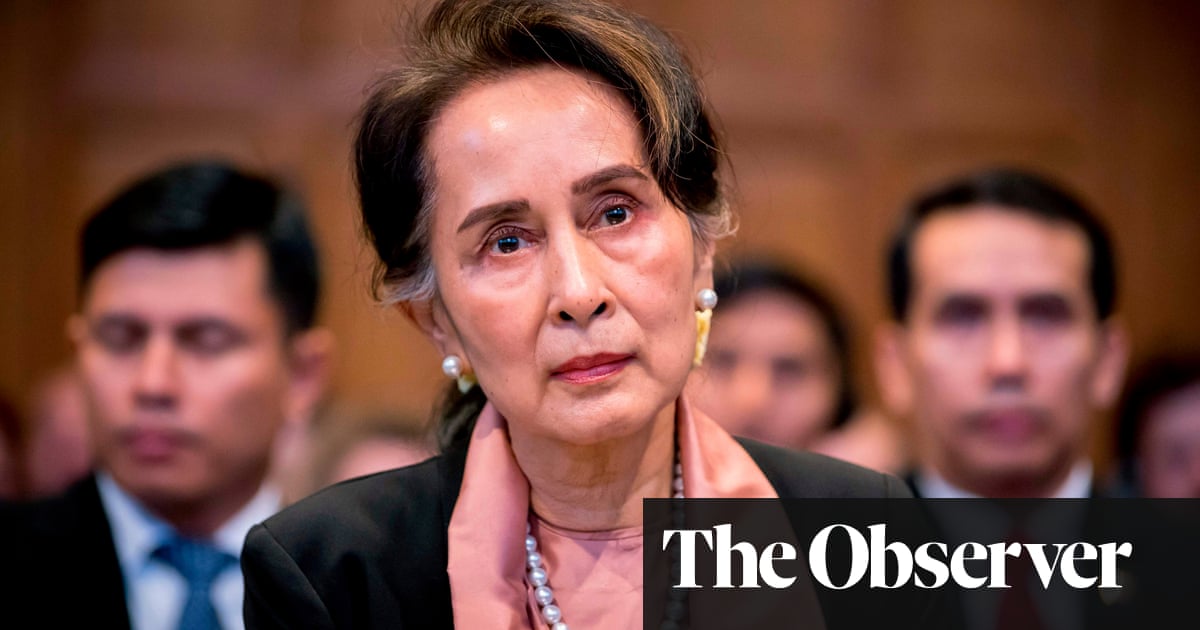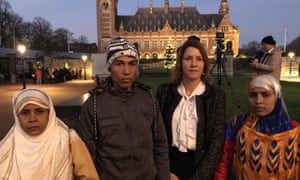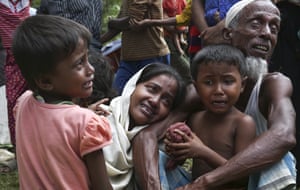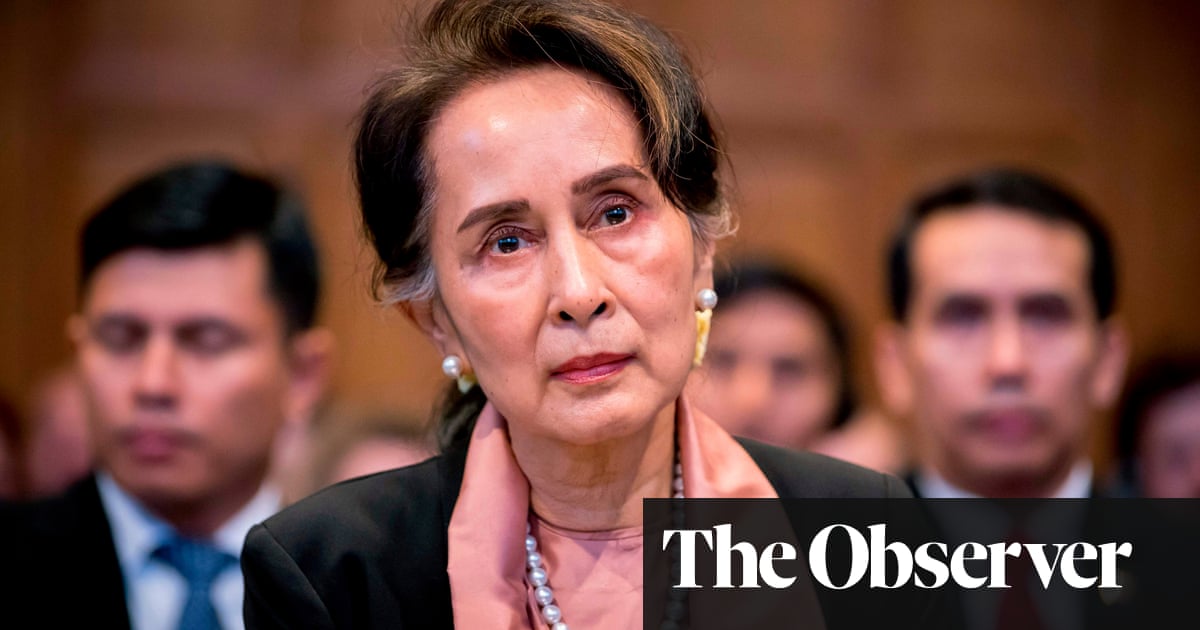Muslim victims of Myanmar clearances voice outrage as peace reward winner dismisses atrocity charges

When Aung San Suu Kyi increased to knock genocide charges versus her nation at the “world court” recently, 3 victims of Myanmar’s ethnic violence were sitting close behind the Nobel peace reward winner– simmering and disbelieving with anger.
Hamida Khatun, Yousuf Ali and Hasina Begum had actually taken a trip from the stretching Kutupalong refugee camp outside Cox’s Bazar in Bangladesh to rest on the legal delegation participating in the International Court of Justice’s emergency situation hearing in The Hague, in the Netherlands.
Only legal representatives were permitted to deal with the 17 judges throughout the three-day session in the United Nations’ greatest tribunal. The banished Rohingya Muslims needed to being in silence, suppressing their feelings.
Khatun, 50, and Ali, 46, chose Aung San Suu Kyi in 2010 when, after 15 years of home arrest, she represented a figure of democratic hope defying the military dictatorship.
In the 2017 Myanmar military “clearance operations” targeting the Rohingya, nevertheless, Khatun’s other half vanished and her buddies were killed; Ali was tortured and sexually attacked by law enforcement officer he understood.
Only outside the court might they expose the level of their disenchantment. Khatun stated she had actually been lured to release a physical attack. Ali confessed had actually been tough to sit silently. Begum, now 22 however too young to enact 2010, stated she might have “consumed” the Myanmar leader. All 3 were persuaded she was lying.
The claim that Myanmar’s military performed mass murder, rape and damage of Rohingya Muslim neighborhoods was brought by the Gambia, a west African state that comes from the Organisation of Islamic Cooperation.

The nation’s chief law officer and justice minister, Abubacarr Marie Tambadou, advised what is called the”world court”to enforce protective”provisionary procedures”to avoid more killings and genocide of the Rohingya individuals in Myanmar.
Aung San Suu Kyi, whose main title is the state counsellor of Myanmar, reacted to the allegation by dismissing it as an” deceptive and insufficient accurate photo of the circumstance”. The violence had actually been activated by terrorist attacks from the Arakan Rohingya Salvation Army (Arsa), she stated. The ICJ is now considering its judgment.
Speaking through translators after the hearing, Khatun stated:”She understands what occurred however she is not doing anything. I felt really mad in the court. I wanted I might have assaulted her. I wished to explain these were kids that were eliminated, ladies who were raped and children charred alive on fires.
“We at first had hope due to the fact that she was maltreated a very long time and she resembled a captive, a victim, so we elected her and anticipated something excellent. I do not believe she turned out well. She was not being genuine. “
Khatun now resides in a tarpaulin hut in Kutupalong with the enduring members of her household. “My neighborhood asked me to speak up and not be terrified of her,”she discussed.”If [Aung San Suu Kyi] is stating absolutely nothing took place, then where is my other half? Where have our kids gone? Bring them back if they have not devoted these atrocities. We wish to go back to our homeland with the defense of UN security forces.”
Begum was assaulted and her other half eliminated when the Tatmadaw, Myanmar’s military, attacked her town, Chwe Pyin. Sitting 2 metres far from Aung San Suu Kyi in court, she felt an increasing sense of fury as she listened to her provide an official address in the stylish courtroom that is embellished with stained-glass windows, Persian carpets and gilt chandeliers.
” She was rejecting whatever,” stated a troubled Begum.” She won the Nobel peace reward. If she’s an excellent leader, how can she reject such atrocities? I wished to consume her, take in her.And she is a lady. The leader of Bangladesh [Sheikh Hasina] is likewise a female, however she treats her individuals well.
” Aung San Suu Kyi might have stopped the military, however she didn’t. She has actually pertained to support the army.”Begum is this weekend going back to her hut in Kutupalong where her 2 young kids no longer have a dad. When he left his house in Nayain Chaung, #peeee
Ali handled to get away with his 6 kids. His daddy, who was unable to stroll, was eliminated, he stated. His sibling’s partner, who had 3 kids, had actually been raped and passed away a week after crossing the border.

Ali’s very first issues with the authorities was available in July 2017. He ran an organisation selling bamboo and roofing system thatching, however somebody incorrectly
implicated him of supporting the paramilitary Arsa. He was kept in a police headquarters for 3 days and tortured, he stated.”Four of the 8 security cops who apprehended me I understood. My legs were kept in stocks and they struck my legs with weapons. They burned my genital areas. I needed to pay a 600,000 kyat [Myanmar currency] allurement to be released. “
It was not up until the following month, when security clearance operations torched neighbouring towns, that he lastly ran away.”People were being eliminated. We saw dead bodies resting on the ground. Numerous had actually been shot.”
Ali got here in The Hague with a valued archive of individual Myanmar photos and files, which he showed with pride.”They state we are Bengali immigrants, however these documents reveal we have a right to residency,” he stated. “I brought these documents so that [Aung San Suu Kyi] might not lie about us not belonging. There ought to be equivalent rights for all the groups in the nation. She has actually maltreated us and we require to let the world understand. It was extremely challenging to stay quiet in court.”
All 3 were given The Hague by the human rights organisation Legal Action Worldwide. Its director, Antonia Mulvey, is a British lawyer who served on the UN’s fact-finding objective on Myanmar.
Interviews she performed with Rohingya refugees who had actually been raped read out as proof throughout the ICJ hearing.” Aung San Suu Kyi and her attorneys were quiet about making use of sexual violence, “Mulvey stated.”They will never ever have the ability to validate extensive rapes as part of a military project [versus terrorists]”
Read more: https://www.theguardian.com/world/2019/dec/14/myanmar-genocide-hearings-victims-fury


Recent Comments